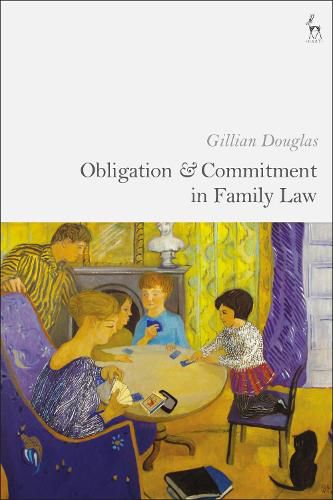Readings Newsletter
Become a Readings Member to make your shopping experience even easier.
Sign in or sign up for free!
You’re not far away from qualifying for FREE standard shipping within Australia
You’ve qualified for FREE standard shipping within Australia
The cart is loading…






A tension lies at the heart of family law. Expressed in the language of rights and duties, it seeks to impose enforceable obligations on individuals linked to each other by ties that are usually regarded as based on love or blood. Taking a contextual approach that draws on history, sociology and social policy as well as law and legal theory, this book examines the concept of obligation as it has been developed in family law and the difficulties the law has had in translating it from a theoretical and ideological concept into the basis of enforceable actions and duties. Increasingly, the idea of commitment has been offered as the key organising principle for the recognition of family relationships, often as a means of rebutting claims that family ties are becoming attenuated, but the meaning and scope of this concept have not been explored. The book traces how the notion of commitment is understood and how far it has come to be used as a rationale for imposing the core legal obligations which underpin care and caring within families.
$9.00 standard shipping within Australia
FREE standard shipping within Australia for orders over $100.00
Express & International shipping calculated at checkout
A tension lies at the heart of family law. Expressed in the language of rights and duties, it seeks to impose enforceable obligations on individuals linked to each other by ties that are usually regarded as based on love or blood. Taking a contextual approach that draws on history, sociology and social policy as well as law and legal theory, this book examines the concept of obligation as it has been developed in family law and the difficulties the law has had in translating it from a theoretical and ideological concept into the basis of enforceable actions and duties. Increasingly, the idea of commitment has been offered as the key organising principle for the recognition of family relationships, often as a means of rebutting claims that family ties are becoming attenuated, but the meaning and scope of this concept have not been explored. The book traces how the notion of commitment is understood and how far it has come to be used as a rationale for imposing the core legal obligations which underpin care and caring within families.